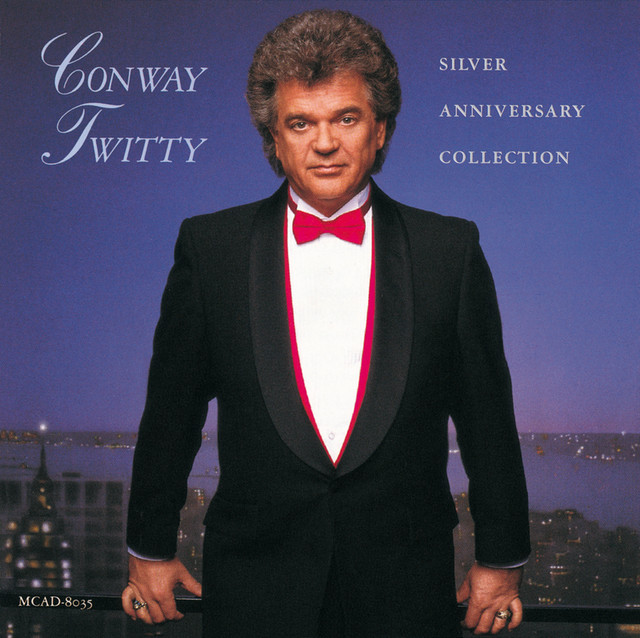
When the Last Whisper Fades: The Heartbreaking Truth of “Goodbye Time”
There are certain songs that, the moment the opening chords strike, transport you back to a specific time, a feeling, or a dimly lit tavern where heartache was poured right along with the whiskey. “Goodbye Time” is one of those timeless pieces, a quintessential late-career masterpiece from the legendary Conway Twitty, a man whose gravely, intimate baritone was custom-built for expressing the deepest trenches of romantic pain. This is not the sweet serenade of “Hello Darlin'”; this is the bitter, unavoidable truth of a final farewell.
Released in February 1988 as the lead single from his album, Still in Your Dreams, “Goodbye Time” proved that even decades into his unparalleled career, Twitty still possessed the unerring ability to connect with the everyday agony of his audience. The song quickly ascended the charts, peaking at Number 7 on the prestigious Billboard Hot Country Songs chart. This success, coming at a time when country music was beginning to shift toward a more contemporary sound, solidifies its place as one of the last great ballads of a classic era, a testament to the enduring power of a well-written lyric and a perfectly delivered vocal.
The story behind the song adds a profound layer of genuine melancholy to Twitty’s performance. Written by Roger Murrah and James Dean Hicks, the inspiration came from Hicks’s own brother, who was struggling through a painful divorce, desperately “holding on to something that was already gone,” as Hicks described it. The co-writers captured the universal moment of resignation—that agonizing point where you realize all the pleading in the world won’t change an already-made mind. Interestingly, the song was initially intended for Reba McEntire. However, Reba, who was going through her own divorce at the time, felt the lyrics hit too close to home—so much so that parts of the song mirrored conversations she’d had with her ex-husband. Her inability to sing it due to the raw, personal connection speaks volumes about the song’s emotional veracity, ultimately paving the way for Conway Twitty to make it his own.
The meaning of “Goodbye Time” is devastatingly straightforward yet complex in its emotional execution. The narrator is the one being left, and he realizes that the time for convincing, for compromise, or for rekindling the flame has passed. He acknowledges his partner’s stated need for change and freedom, but the true punch comes with the quiet acceptance: “If the feeling’s gone, words won’t stop you anyway.” The chorus, “If being free is worth what you leave behind / And if it’s too late for love to change your mind / Then it’s goodbye time,” is a masterclass in stoic, heartbroken surrender. It’s the final, sad whisper of a man who knows, deep down, that the argument is over, the verdict is in, and all he has left is to stand aside and let the inevitable happen.
For those of us who grew up with Conway Twitty’s music, hearing “Goodbye Time” evokes a powerful sense of nostalgia, a memory of simpler times when a country song could effortlessly distill the entirety of a ruined romance into three minutes of soul-stirring truth. It’s a reflective ballad that reminds us that even for the heroes of country music, love doesn’t always win, and sometimes the bravest thing a broken heart can do is simply let go. It’s a bittersweet farewell to a love and, for many, a beautiful, final echo from a golden era of country music.